Trending
Opinion: How will Project 2025 impact game developers?
The Heritage Foundation's manifesto for the possible next administration could do great harm to many, including large portions of the game development community.
The discussion analyse The Last of Us and God of War to see how games with dark themes can ultimately provide a story with a message of hope!

Hello, Gamasutra! This is my first blog here on the website, and before we continue, I want to thank everyone who took their time to read this! I intend to bring you story-related articles, so if you liked this first post, don't forget to leave a comment! Okay... Here we go!
Narrative is an increasingly important element in video games, and two modern games are highlighted because of their exceptional storytelling: The Last of Us (Naughty Dog) and God of War (Santa Monica). The two games share many similarities while existing as distinctive, singular games.
Today, however, I’m here to discuss with you guys and girls one of the similarities shared by those great games – their Themes, and how they are an integral part of the characters’ arc, expressing themselves through the beliefs of the main character, their partners and even their enemies; and, by that, seeing how going down into the darkest parts of humanity can grant us a glimpse into the light!
This discussion was inspired by Lessons from the Screenplay video comparing the film Se7en and the TV show True Detective. If you haven't watched it yet, I highly recommend!
The Ministry of Health adverts: below, there will be spoilers for both games! So, if you didn’t play one or the two of them, proceed with caution!
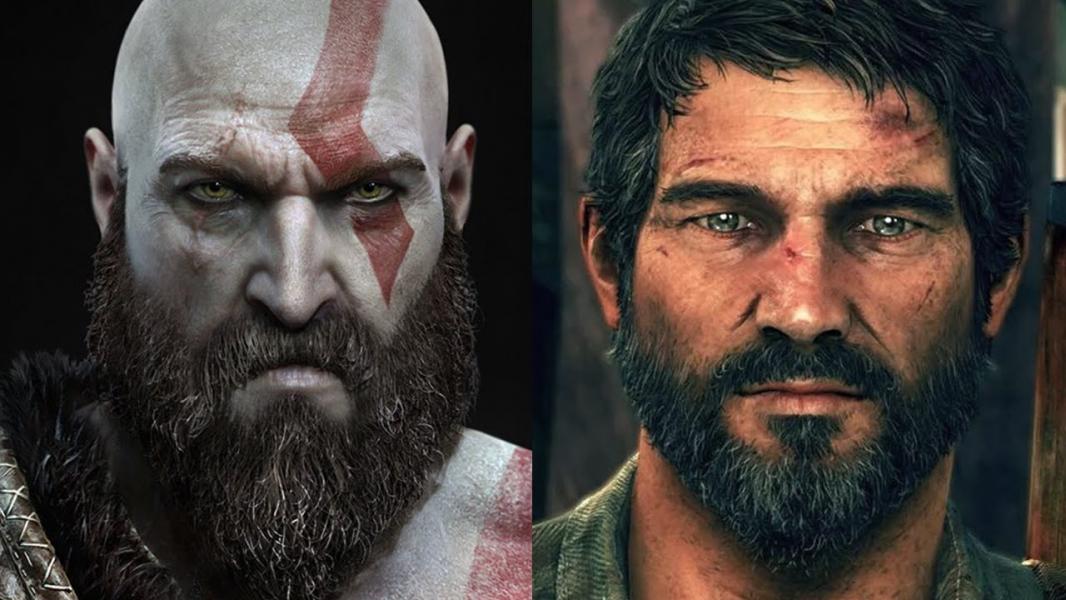
First of all, let’s establish each stories’ theme. Rarely a story will work with a single theme, however, every good story has a main theme that better resonates with the whole structure!
THE THEMATIC PREMISE
For the sake of simplicity and clearer understanding, let’s put aside most complex terms and use theme in its humbler form – the thematic premise, as Blake Snyder calls it. In his book, “Save the Cat!” Snyder states that the theme must be declared, usually in the beginning, but that’s not a rule. Somewhere during the storytelling journey, a character will say something that might sound trivial, but has a deeper meaning and impact to the whole story! In both God of War and The Last of Us, the main characters are responsible for stating the theme.
“I struggled for a long time with survivin'. And you – no matter what, you keep finding something to fight for.”
This is the ending of The Last of Us, when Joel takes Ellie away from the Fireflies. And there’s our theme: “No matter what, you keep finding something to fight for.”
God of War does something similar, but not right in the ending:
“We must be better.”
This simple line summarises what’s God of War about!
Notice how, for both The Last of Us and God of War, the Thematic Premise shapes the story, the world and characters. From Tess to Freya, the Theme found a way into the telling, each supportive character having an importance and a saying on the subject.
THE BELIEFS OF THE PROTAGONIST
At the “real” beginning of The Last of Us, we see an older and bitter Joel whose only concern is to survive. He has no sympathy for anyone except his close companion Tess, for whom, if you look closely, he still keeps a "safe emotional distance". Their relationship is more of allies than actual friends.
Kratos is much like Joel, though he is even more extreme. The Ghost of Sparta exiled himself from the world, embracing a state of deeper apathy, a nihilist mindset against the whole world.
“Close your heart to their desperation. Close your heart to their suffering. Do not allow yourself to feel for them,”
Kratos says right after their journey begins. Both Joel and Kratos are cold towards the rest of humankind. But it goes beyond indifference, and the question we must ask to understand their beliefs is: why are they this way?
Usually, character traits are shaped by what we call Ghosts/Wounds, an event in their past that haunts them. In The Last of Us, Joel’s Ghost is very clear as we play it in the prologue of the game. His daughter, Sarah, was murdered by a government soldier while she was in his arms, a place he thought was able to protect the little girl from any harm.
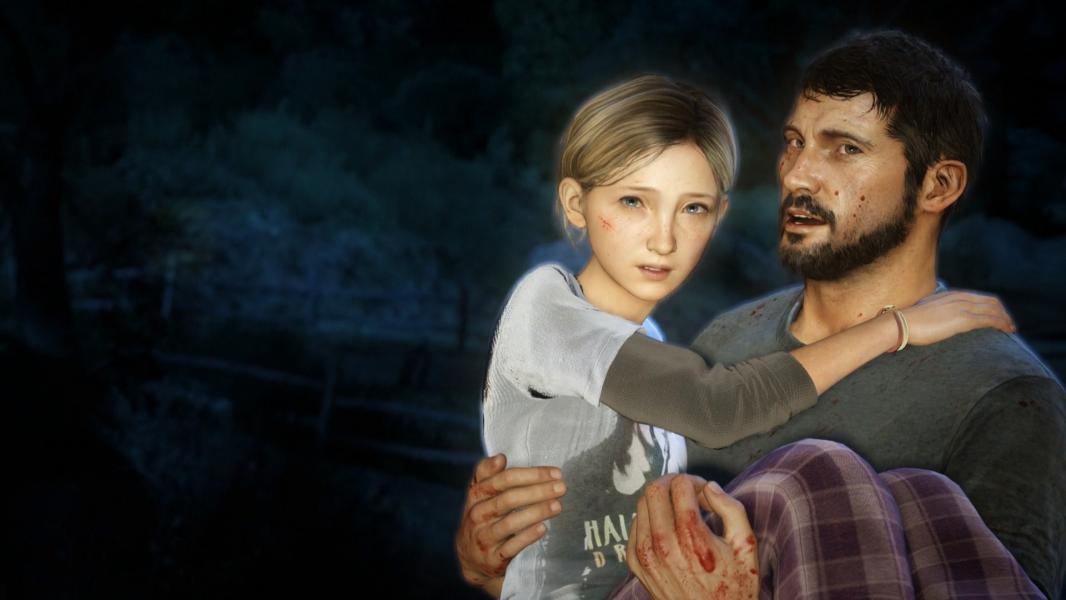
In God of War, the Wound doesn’t objectively appear on-screen, as it’s a continuation of a long saga, but for those familiar with the franchise, it’s also clear as crystal what’s his Ghost – the killing of his daughter and wife by his own hands, a tragedy that impregnated in his very skin and haunted him for years to come, shaping an unstoppable rage that destroyed the world as he knew it.
In addition to the Ghost, there’s a change of behaviour, as explained in the book “The Negative Trait Thesaurus”, written by Angela Ackerman & Becca Puglist:
“Wounds are often kept secret from others because embedded within them is The Lie – an untruth that the character believes about himself. Self-blame and feelings of shame are usually deeply embedded within the lie, generating fears that compel him to change his behaviour in order to keep from being hurt again.”
Joel believes that his daughter’s death was his fault. Who wouldn’t live thinking that could’ve done more in a situation like that? In the years that followed Sarah’s murdered, he “closed himself”, struggling to never care again about someone. Joel’s hostility towards Ellie is clearly not because the job is dangerous or any other cheap excuse – it’s because he’s afraid of ending up caring for the young girl!
Kratos suffers from both traumas – self-blame and shame. He’s not proud of his greed that led to a desperate cry for help to the God of War. With Pandora and the power of Hope, the Spartan felt the crushing weight of guilt and the terrible consequences of his journey for revenge. Because of that, when he flees from Greece, he wishes to be alone. He doesn’t want peace, ‘cause he believes that’s not a thing for him; instead, he wants to prevent his anger from hurting anyone else.
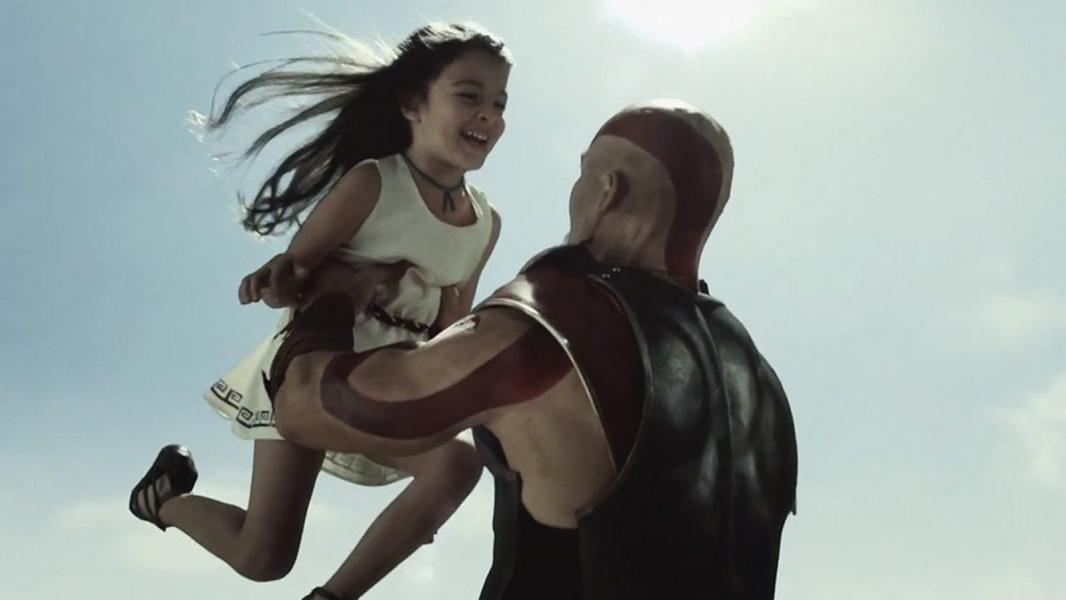
THE PARTNERS AS A KEY ELEMENT TO THE JOURNEY OF CHANGE
As painful as it can be, there needs to be change! And to that end, the two games feature partners as a narrative element that creates conflict, putting together two people who are intrinsically different from each other in terms of value. What does it mean?
The Last of Us features Joel and Ellie. Our protagonist, as we discussed earlier, is a man that’s simply “existing”. His life is nothing but a daily struggle to survive. He is incapable of seeing the beauty in the chaotic world, distrustful of everything around him. When Ellie enters his life, she’s the girl who has never been outside military camps or quarantine zones, she has never seen what’s the world can show. She’s a dreamer! That’s why, for her, everything is amazing! She’s there to offer new perspectives on how to look at life!
“Everyone I have cared for has either died or left me. Everyone - fucking except for you! So don't tell me I would be safer with somebody else, because the truth is I would just be more scared.”
This gets to Joel. In one of the best scenes in the game, Ellie throw his Lie right in his face!
For God of War, we have Atreus. Kratos and Atreus don’t get along at all, the two of them being extremely different, especially considering the father was absent during most of his son’s life. Despite more active in terms of Gameplay, Atreus and Ellie function for the narrative are very similar – to offer the person they’re following new perspectives. Atreus do most of the talking for his father, and by not treating everyone as a potential enemy, widen his father's awareness that there's more to the world than pain and sorrow.
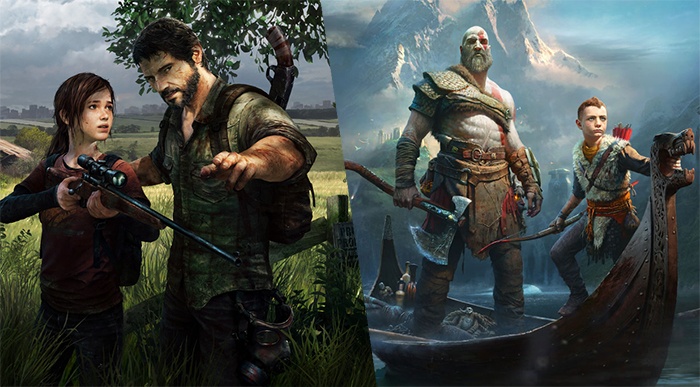
However, as important as the partners are, their presence alone can’t be enough to change the protagonist. To truly reach their needs, Joel and Kratos must face the Antagonist.
THE DARK MIRROR
The antagonist is a Dark Mirror for the protagonist – a person and, in more minimalistic stories like the ones we're just analysing, a feeling, who’s thematically similar to them, more than the partner or any other supporting character.
Joel and Marlene are willing to do what it takes to survive. The Firefly Queen gave her heart an ice bath, reading herself to sacrifice Ellie in the hope of finding a vaccine. If the journey to find the Fireflies had been a catwalk, and Joel had arrived at their base without going through all of that, would he care about Ellie’s death? Of course not! He would accept his guns and go back home to… well, keep surviving.
Marlene empowers the current mental state that nothing in the world is more important than surviving and, although the need for surviving may be strong on itself, the game proves that, alone, this need feels empty. How much are we sacrificing to save ourselves? How far can we go before everything lose its meaning?
Ellie jumpstarted the cold smuggler, but only by finding the strength and willpower to fight against Marlene - and his inner demons - to rescue and lie to the little girl, is that the true change aroused, meeting Joel’s unconscious desire.
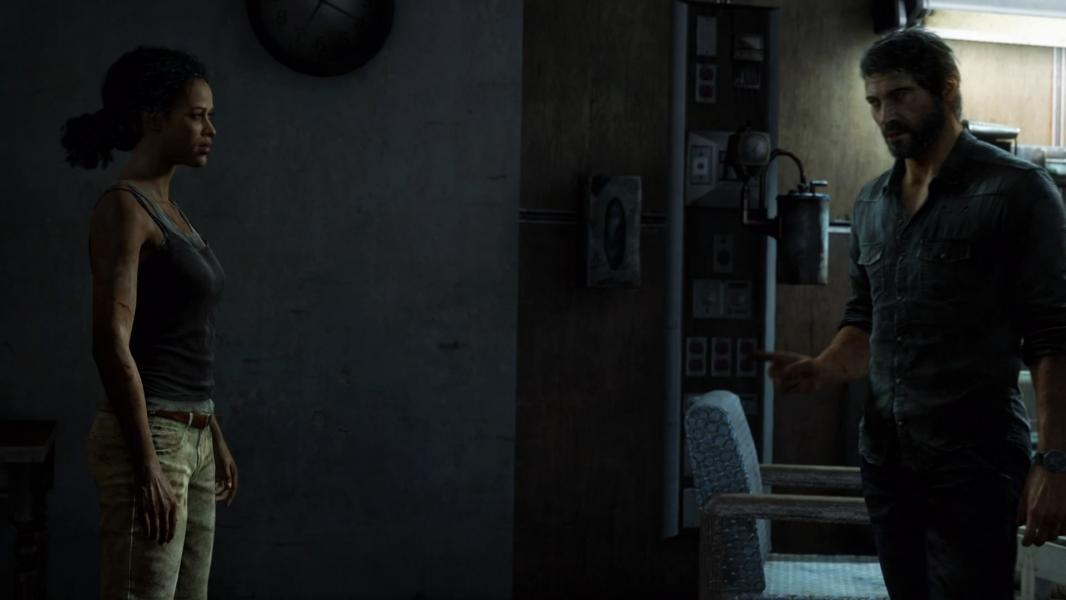
What about God of War? Kratos and Baldur are much alike. “Why?” Baldur asks during the final battle. “Why do you even care? You could have… walked away.”
“The cycle ends here,” Kratos replies, quoting his father’s words in a whole new sense. Calliope and Pandora died because of his need for power and vengeance, respectively. Atreus, however, had the potential to be as powerful as – or even more than – his father, and Kratos saw the boy following his steps. To prevent the same destiny, Kratos must overcome his main antagonist, both inner and outer. “The cycle ends here” represents the White Warrior’s awareness of his thematic premise – we must be better.
Both Joel and Kratos come face to face with an extreme version of themselves – Marlene is more than disposed to sacrifice an innocent child, without her “permission”, in the search of a possible vaccine; she is isolated from her own feelings, as if “survive” has become a mechanical routine. Baldur is eager to get rid of what he considers to be a curse – the fact that he can’t feel anything and, consequently, cannot die, because of his mother’s radical efforts to keep him safe. He will destroy anything in his path, including Freya herself, who prefers to surrender her life for his son to fulfil his wish for revenge and see him keeping on living than to see him suffering. An ultimate sacrifice in the name of love.
Baldur would get his revenge should Kratos hadn’t interfered. He could’ve walked away, but he didn’t. He chose to be better. No more unnecessary deaths. No more sacrifices for the sake of a hollow surviving.

THE LIGHT
Because of their journey, the partners they were teamed-up with, the forces of antagonism they faced, our characters changed. Their beliefs have been moved, not all the way through the other pole, but enough to make them rise against apathy, against coldness. Joel still stands up for those who block his way – the guard and Marlene –, but he found something that’s truly worth fighting for. Kratos didn’t hang up his weapons, didn’t give up being a warrior. Instead, he now fights for what’s truly worth, not for a bestial eagerness for blood nor an attempt to keep distance from his past.
Both The Last of Us and God of War bring dark stories, narratives that investigate and show us the ominous sides of our existence, the atrocities humankind can commit with their own selves and others. However, in the end, they’re optimistic stories! Kratos and Joel go through terrible situations, and yet come up stronger, with a resolution of not giving in to that apathy. To make sure we are always the best version of ourselves.
As you can see, the Theme helps a writer to keep the focus on the story's message - and every story has one. It’s one of the most powerful guides we have in our craft. By clearly knowing our Theme, we can create a much more solid and coherent telling with credible characters and world!
Read more about:
BlogsYou May Also Like